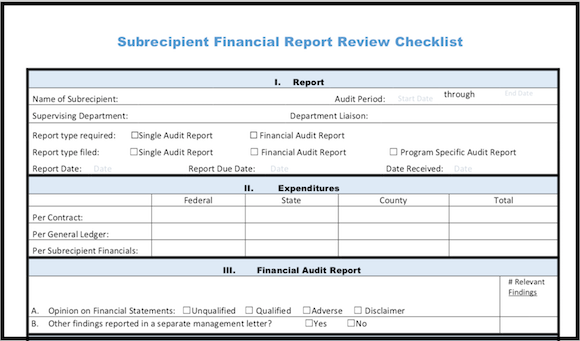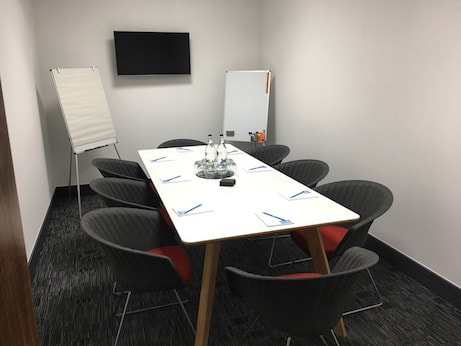|
Properly managing grants is a complex, and sometimes tedious, process. In recent posts, we have addressed some best practices in managing grants including written procedures, status reports, monitoring sub-grantees, maintaining proper records, planning and close-out meetings, and deciding whether to centralize or to decentralize grants management.
In this post, we discuss another best practice to consider in managing grants – the use of a grants management workgroup. Below, we discuss who should participate in the workgroup, what the workgroup’s agenda should be, the recommended frequency of meetings, and the role of the facilitator in the workgroup. First, let’s address why workgroups are helpful for effective grants management:
Most governments manage grants on a decentralized basis, relying on employees in various operating departments to identify, apply for, and manage grants. There is seldom any one employee that understands the entire grants management, including what procedures are performed in Finance and in the various other departments.
So, in order to assure that the various employees involved in grants are effective in following City policies and procedures, they must:
This is facilitated by good written policies and procedures and by regular meetings (see which ones are most important) of the employees involved in managing grants.
A workgroup that meets periodically to discuss grants can assure that all employees understand policies and procedures, know where to maintain and obtain needed financial information, maintain grant documents in a readily available shared file, and assure responsibilities for reporting and compliance are identified. What should be covered?
The grants management workgroup’s agendas should focus on the following:
Who “leads” the workgroup?
When forming the workgroup, the government should appoint a participant to act as facilitator. This person won’t necessarily be the workgroup “leader,” but instead will assure that participants actively participate in the workgroup, as well as he or she will track responsibilities for action agreed to in the meetings. This person should also act as the grants management process owner.
A grants management process owner assures that there is someone responsible for the effectiveness of the entity-wide grants management process. He or she can be the focal point of communications about grants between workgroup meetings, and can be the link to escalate workgroup requests to senior management when necessary. Who should participate in the grants management workgroup & how often should they meet?
The workgroup should include all employees who have significant responsibility for spending, reporting, accounting for, or managing grants, including representatives from Finance.
After an initial planning meeting, we recommend that the workgroup should meet monthly until they have gained a shared understanding of the grants management process, assured that policies and procedures are up-to-date, identified recurring problems, and developed action plans to address those problems. After that, two to four meetings per year may be adequate to assure the process continues to be effective and efficient.
Setting up a grants management workgroup will aid with communication and compliance of all your grants.
If you’d like a personalized help in setting up a grants management workgroup, or for other assistance with your grants management, please email or call me directly – at no cost to you:
Kevin Harper, CPA [email protected] (510) 593-5037
Don't miss out on more tips for improved grants management and other free tools — subscribe to our newsletter here (we hate spam just as much as you do, so we'll only send you useful information!)
Comments
|
The Government Finance and Accounting BlogYour source for government finance insights, resources, and tools.
SEARCH BLOG:
Meet the AuthorKevin W. Harper is a certified public accountant in California. He has decades of audit and consulting experience, entirely in service to local governments. He is committed to helping government entities improve their internal operations and controls. List of free Tools & Resources
Click here to see our full list of resources (templates, checklists, Excel tools & more) – free for your agency to use. Blog Categories
All
Need a Consultation?Stay in Touch! |




 RSS Feed
RSS Feed